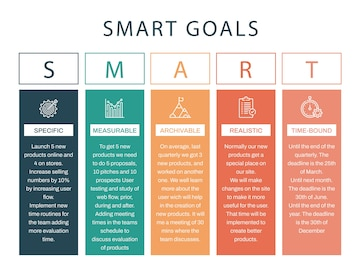Are you currently embarking on a job search journey? It’s natural to experience a mix of emotions—excitement, anticipation, and perhaps a touch of anxiety. This journey can be overwhelming, but setting clear goals can significantly enhance your chances of success.
Why is Goal-Setting Crucial in Job Searching?
Setting goals during your job search is pivotal for several reasons. Primarily, it provides a sense of direction and purpose. When you clearly define what you aim to achieve, you can channel your efforts towards opportunities that align with your objectives. This focus not only saves time and energy but also empowers you to make informed decisions throughout the process.
Moreover, goal-setting can boost confidence and motivation. Job hunting can be challenging, but having specific goals gives you something to strive for, keeping you motivated during the highs and lows. Maintaining a positive and resilient attitude becomes easier when you have a clear vision of what you’re working towards.
The Benefits of Goal-Setting in Job Searching
Setting goals during a job search offers numerous benefits that significantly impact your success. It helps you stay focused amidst the multitude of job postings, networking events, and resources available. By setting clear goals, you can filter out distractions and concentrate on opportunities that align with your objectives. This focused approach allows you to invest time and effort in activities most likely to lead to your desired outcome.
Furthermore, goal-setting helps in prioritizing efforts. With specific goals in mind, you can strategically allocate your resources. Whether it’s enhancing skills, networking, or refining your application materials, setting goals helps identify the most critical tasks and prioritize them accordingly. This prioritization ensures progress towards your objectives rather than being lost in non-essential activities.
Types of Goals for Job Searching
In job searching, various types of goals can guide your efforts: short-term, medium-term, and long-term goals. Short-term goals focus on immediate actions to enhance job prospects, such as refining your resume or attending networking events. Medium-term goals revolve around skill development and expanding your professional network. Long-term goals encompass broader career aspirations, like achieving a specific position or transitioning into a new industry.
It’s essential to set goals that are both realistic and challenging. Realistic goals set you up for success, while challenging goals encourage growth and achievement beyond your expectations. Balancing these aspects maintains motivation and progress without becoming overwhelming.
Setting SMART Goals for Job Searching
To set effective goals, use the SMART framework: Specific, Measurable, Achievable, Relevant, and Time-bound. Adhering to these criteria increases your chances of success and maintains a clear focus throughout the process.
Firstly, goals should be specific, avoiding vagueness. Instead of a goal like “find a job,” specify the type of job, industry, and skills you aim to utilize. Specific goals ease action planning and progress tracking.
Secondly, goals should be measurable. Attach concrete metrics to your objectives, allowing progress tracking and strategy assessment.
Thirdly, goals should be achievable. Challenging oneself is important, but unrealistic goals can lead to frustration. Consider current skills, resources, and time constraints when setting goals.
Moreover, goals should be relevant to your job search, aligning with your overall career objectives. Relevant goals maintain focus and motivation, showcasing how each action contributes to your ultimate goal.
Lastly, goals should be time-bound, with specific deadlines for a sense of urgency and accountability. Breaking down goals into smaller milestones aids in tracking progress and maintaining focus.
Tracking and Measuring Progress
Setting goals is just the start; tracking and measuring progress is equally crucial. Regular assessments help make adjustments and stay on course. Breaking goals into smaller tasks not only makes them manageable but also provides smaller victories along the way, boosting motivation.
Consider using a job search tracker or spreadsheet to monitor applications, interviews, and networking events. Recording metrics enables pattern identification and strategy evaluation.
Overcoming Challenges and Setbacks
Challenges and setbacks are part of the process. Instead of being discouraged, see setbacks as learning opportunities. Reflect on what didn’t work and adjust strategies accordingly.
Maintaining a positive mindset and seeking support from a network can be vital. Taking care of physical and mental well-being aids in resilience during tough times.
Resources and Tools for Job Searching
Numerous resources like LinkedIn, job search websites, and career coaching services aid in goal-setting and job searching. Utilize these to research, gain industry insights, and connect with professionals.
The Role of Goal-Setting in Long-Term Success
Goal-setting isn’t just for job searching but remains crucial throughout your career. Continuously setting and refining goals keeps you proactive in professional growth. As your career advances, goals may evolve but adhering to SMART principles remains key.
Examples of Job Search Goals
Here are examples:
Short-term goal: Tailor resume and cover letter to job specifications.
Medium-term goal: Attend networking events regularly.
Long-term goal: Attain a specific position within a set timeframe.
These goals should align with your aspirations, ensuring they match your objectives.
In Conclusion
Setting clear goals during a job search is critical for success. It provides direction, focus, and motivation. The SMART framework aids in setting objectives, and tracking progress is crucial for adjustments. Embrace setbacks as learning opportunities and utilize available resources for support. So, set your goals, stay focused, and journey confidently toward your dream job.

